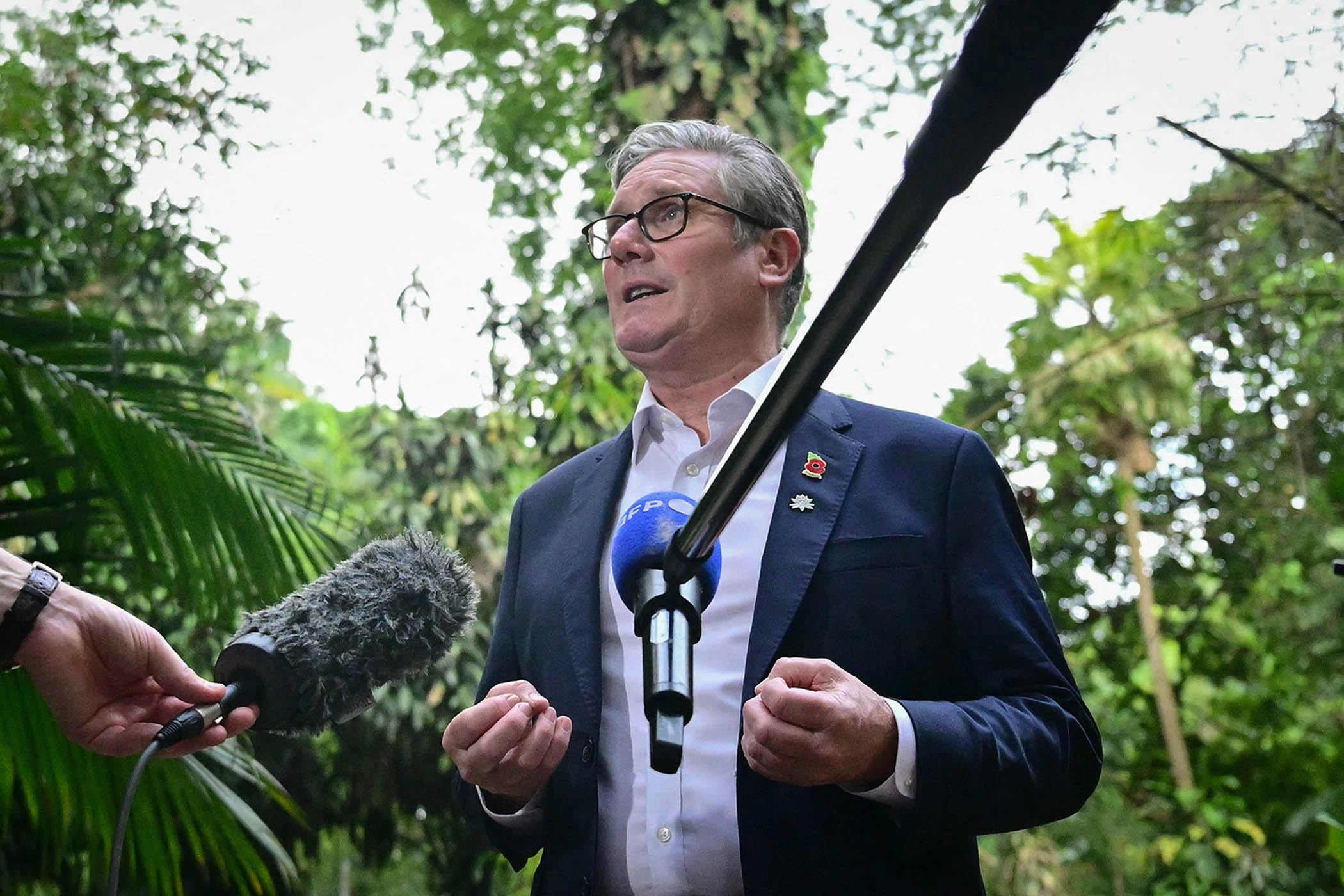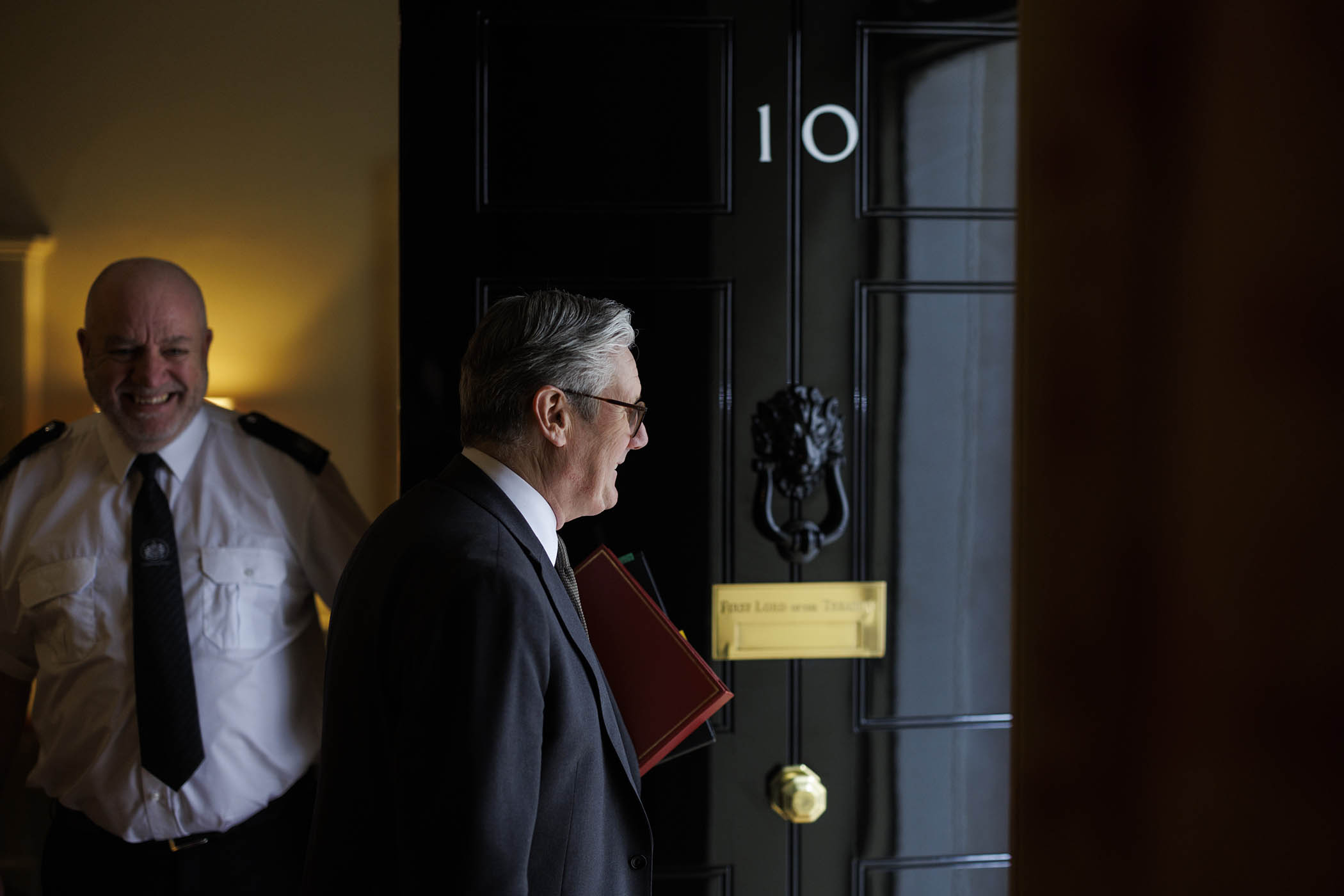From the promise of green jobs to the peril of melting glaciers, centre-left leaders once made climate change a core part of their appeal. Now? Not so much.
In the space of a few years, climate policy has faded from view as progressive politics has narrowed to a fight for survival. This week, Keir Starmer was in Brazil for the UN’s Cop30 climate talks, but has scrapped a pledge to spend £28bn a year on green investment and backed airport expansion. Canada’s prime minister, Mark Carney, who once led a green finance initiative for the UN, has repealed a carbon tax and delayed a mandate for carmakers to hit EV sales targets.
In fiercely contested Dutch elections this autumn, the Green-Labour alliance led by former EU climate commissioner Frans Timmermans described housing as its highest priority (though it maintained ambitious climate targets). Colombia’s first leftwing president, Gustavo Petro, has banned exploration for fossil fuels, but the country has been forced to import gas to meet demand, and rivals for the presidency are calling for a renewal of the industry.
Among a new generation of more radical leaders, Zohran Mamdani, torchbearer of America’s progressive left, and Zack Polanski, despite leading the Greens in England and Wales, have both put climate on mute.
The most obvious explanation is that the cost of living has become a more pressing issue for voters than climate change. As the Green candidate for mayor of Paris, David Belliard, put it last week while reflecting on Mamdani’s victory: “We’ve spent a lot of time fighting against the end of the world, but maybe not enough helping people make it to the end of the month.”
Centre-left parties grasped this connection and tried to channel climate politics into green industrialisation, an impulse that reached its high watermark when Joe Biden introduced a vast package of clean energy spending and tax credits in 2022. But the promise of green jobs – even, in some states, the reality of green jobs – did not save Biden from defeat.
In the UK, Labour’s retreat on its green investment pledge was blamed by Starmer on higher interest rates but was also a means of shielding the party from Conservative attacks over the scale of public borrowing needed
Tone Langengen, senior energy policy adviser at the Tony Blair Institute, said the Democrats’ defeat in the US presidential election last year was “a really difficult moment for the green jobs strand of thinking. It wasn’t shown to be such a vote-winner as many leftwing parties thought.”
The left’s retreat is partly due to the rising cost of living, Langengen suggested, “but also because rightwing parties got more momentum, winning the debate around framing net zero as a moral crusade and leftwing parties as out of touch”.
Clive Lewis, Labour MP for Norwich South, said the party’s leadership – now bereft of its central economic idea of green growth – had struggled to make the connection between economics and climate change.
“We are at the stage of the climate crisis, the nature crisis, which is about food prices and energy prices – that’s cost of living, but they don’t have answers for it,” Lewis said.
‘We’ve spent a lot of time fighting against the end of the world, but maybe not enough helping people make it to end of the month’
‘We’ve spent a lot of time fighting against the end of the world, but maybe not enough helping people make it to end of the month’
David Belliard, Green candidate in Paris mayoral election
Labour’s scaling back of green spending and Donald Trump’s unravelling of his predecessor’s clean energy drive risks creating a vicious cycle as a slowing transition erodes public support. Hitting net zero targets will require a significant scaling up of technology, a major programme of trading household gas boilers for heat pumps, and electrifying industrial processes such as glassmaking.
Steve Akehurst, director of Persuasion UK, a thinktank, said that work with focus groups indicated UK voters had a “really good bullshit detector”, noticing that the shift to heat pumps in kitchens and EVs on driveways has been gradual. Akehurst said: “They are not naive about some of this stuff, but rightly sceptical. It’s a lot harder to deliver in practice than in theory.”
Meanwhile, an upsurge in climate protest – Fridays for Future around the world and Extinction Rebellion in the UK – has been met by a policing crackdown. The UK was an outlier on this, with nearly a fifth of environmental protests ending in arrests, while activists’ disruption of daily life provoked public aggravation. The side of the climate movement that emphasised the need for shared sacrifice rather than the promise of prosperity has effectively been neutered.
The Covid pandemic may hold part of the answer to why the left’s embrace of green politics has unravelled. Grassroots movements against lockdown have morphed into attacks on net zero, with research by the Institute for Strategic Dialogue finding that Covid-sceptic social media accounts have become increasingly prevalent in the network of people amplifying climate misinformation. A Sky News investigation has raised questions about whether X’s algorithm is pushing rightwing content to users. And as the world emerged from pandemic shutdown, Russia attacked Ukraine and energy prices spiked, selling the green transition at household level became far more of a challenge.
Germany’s coalition of Social Democrats, Greens and pro-business Free Democrats was nearly ripped apart two years ago over a proposed ban on the installation of new oil and gas heating. In the end, the German parliament approved a diluted version of the law that required heating in new buildings to shift to renewable energy – but still allowed the gas system to continue in older housing.
Robert Habeck, then Germany’s vice-chancellor and Green leader, became a hate figure and quit politics this year.
Anger at environmental failures – from dirty rivers to mould-infested homes – is more palpable than ever. The politician who can seize and exploit that mood remains elusive.
Photograph by BEN STANSALL/POOL/AFP via Getty Images
Newsletters
Choose the newsletters you want to receive
View more
For information about how The Observer protects your data, read our Privacy Policy



